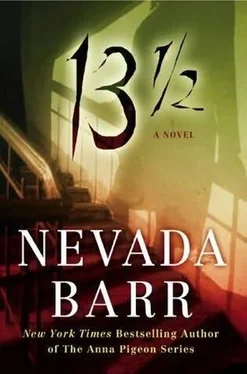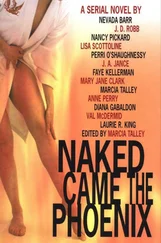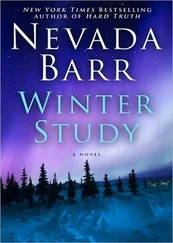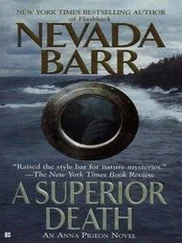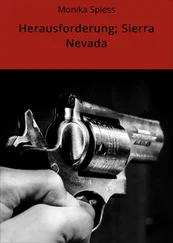“Keeps to herself,” Emily, the tarot reader, had said.
Filling the emptiness, Polly thought, looking at the mess of goods with which Red had surrounded herself.
Beneath the bed, where the Woman in Red had made her last stand, still using the furniture, still turning on the light, reading her magazines and smoking her cigarettes, Polly found the second personal item: a photo album embossed with oversized leatherette daisies in the psychedelic colors of the sixties, the kind a teenaged girl might have been given. In keeping with her usual style, Red had not put her memorabilia under the plastic page covers but jammed it in every which way.
Sitting tailor-fashion on the floor-whatever effluvia was there would surely be less toxic than that on the dingy bedsheets-Polly put the album in her lap and turned the garish cover. Between the first page and the cardboard were snapshots. They’d been taken by an old Polaroid instamatic and the colors had faded. Several were stuck together from being mashed against one another so long. There was a photograph of a man and woman standing on the steps of a brick house. A bicycle was overturned by the bottom step. A pretty little girl of eight or nine sat beside it smiling for the camera. Two other pictures of the family group featured the mom, the little girl, and a shy-looking teenager. The face had been scratched off the pictures of the older girl.
“That’s you, isn’t it?” Polly said to the ghost who kept her company. “You poor thing. Terrible to erase yourself like that. I would dearly love to wring the necks of whoever made you hate yourself.”
Polly set the pictures aside and turned the page. Again, photographs had been shoved in but not arranged. These appeared to be the “art” shots every young girl feels compelled to take when given her first camera. One shot had been taken through what looked to be a knothole. Three were of the house, the camera held at funky angles. The rest were long shots of a boy, the angle suggesting they’d been taken from an upstairs window. The indifference of the subject to the camera suggested they’d been taken in stealth. The distance was so great Polly couldn’t tell if the boy was happy, sad, handsome, or plain. He was white and in his teens; he could be any boy anywhere. In the faded Polaroids he mowed grass, fixed the tire of a bike, went in and came out of a two-story brick house. The photographer had taken twenty-four shots of him, a single roll of film.
Polly wondered if this unsuspecting model and the high school ring in the cigar box were related. Clearly, the Woman in Red had suffered a passion for him at one time, but Polly couldn’t see this boy giving his ring to the shy girl who’d scratched out her face.
Maybe she stole it.
“I’m sorry, sugar. That was uncharitable. I know you did not steal that boy’s ring,” she apologized to her invisible companion whose corporal self continued to rot in the tub in the next room.
Polly set these snapshots with the others. When she turned the next page of the album, yellowed newspaper came out in a crumpled wad.
“What is it with old newspaper clippings tonight? I swear I have not looked at this much newsprint since Gracie went through her parakeet phase,” Polly said, smoothing them out on her thigh. The newsprint would stain the linen, but after the first hour, she had decided to get the slacks cleaned and donate them to Goodwill. Between then and now, she’d decided to burn them instead.
“There must be forty articles!” Polly exclaimed. “I am not going to read them all, sugar. I don’t care how long you’ve been collecting them.”
“Raines,” she read aloud.
In the file box in the basement there had been a mention of the Raines trial.
“Damn.”
Without warning, the lights went out. Darkness struck like a blow. Shuttered, blinded and draped, midnight in the apartment was absolute. Disoriented, Polly grunted, a tired helpless sound comprised of exhaustion and surprise.
Darkness and silence-the air conditioner was no longer running.
“The power has gone out,” she said into the stillness.
Then she heard someone moving in the living room.
Polly had been immersed in the tarot reader’s sordid universe for so long her first thought was of the ghost of the Woman in Red. “Is it you?” she whispered before she could stop herself. A sharp intake of breath answered her. Ghosts had no need to breathe.
Noise from the other room died with her words. The man-surely a man-had stopped moving. Polly stopped breathing to listen. She hadn’t heard him come in. This was no opportunistic thief; he had been here before. Only someone with experience could negotiate from landing to living room in silence and without light.
Polly thought the day’s adventures would have drained her adrenal glands, but her heart pounded with such force blood rushing past her ears drowned all other sounds. In the utter, mind-breaking darkness she felt her senses reach out, ears straining, eyes widening, nostrils flaring, every system seeking information she might use to survive.
There was no question in her mind that survival was the issue. The Woman in Red’s killer was in the apartment. Violence permeated the air, a negative charge that raised the hairs on her arms. Raised in violence, Polly had never forgotten the edgy vibration in the void that preceded it.
Between one breath and the next, she understood what was meant by the cliché of one’s life flashing before one’s eyes. She had imagined it would be like a slide show on fast-forward, images of the good times one after another.
It was not like that. The whole of her life, who she was, what she had done-everything exploded at the same moment. A supernova of memory: people she’d fought against, those whom she had fought for, those whom she loved, and hated, and lost, and found. The life she had been handed and the life that she had made. Her girls at every age. The dirt of her childhood and the dirt of her garden. Evils she had run from and those she had embraced. The husband she’d left and the husband she loved. Axes and exes, birthday parties and pets, flat tires and spelling bees, labor, groceries, Emily Dickenson, shoes that pinched, tonsillitis. All of it was there.
Then it was gone. Polly slammed back into total darkness of mind and body. But not spirit. The images ignited a fury for life. She would not end up as another bit of trash on the floor of a garbage house. By the age of four, Polly was accustomed to escaping drunken men and mad women. On bad nights, she would come awake thinking she’d heard raging footsteps above her hiding place beneath the trailer.
She’d been so small then, she could wriggle through cat doors and wood piles, lie flat in high grass. Here, she had only darkness and silence. If the man in the other room had a flashlight, she was a dead woman. Seeing was to his advantage, and she wondered why he’d turned off the power.
He didn’t want to be recognized.
Because she knew him.
For a snick of time, the thought that it was Marshall robbed her of her desire to remain among the living. But her life was too rich to destroy in a snick.
“You will kill him,” she heard Red hiss. “You will kill your husband.”
Gracie and Emma, holding hands and laughing.
So be it, Polly thought.
Moving smoothly, each hand placed, each foot shifted with care and in silence, Polly stood up from the floor. Her limbs were not stiff, her back not sore. Adrenaline had seen to that.
“Unh!” came from the living room. Like her, the man was trying to move without sound.
He’d turned off the lights because he knew the paths through the house. But, over the hours, Polly had rearranged the garbage. Suddenly, she remembered how she had reconfigured the map of the mountains of junk, envisioning not just a vague image of where things were but a complete catalog of everything she had touched, where she had tossed it and how hard.
Читать дальше
